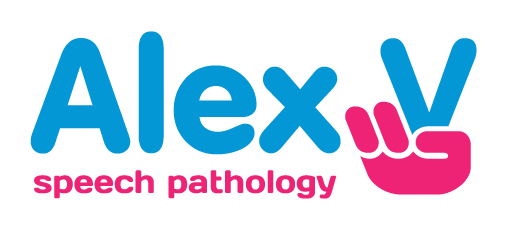As speech and language pathologists, we often forget that many of our clients aren’t aware that speech therapy and language therapy are two very different things. Believe it or not, someone who has a speech disorder won’t necessarily have a language disorder; and vice versa. In basic terms, speech refers to the way that we produce sounds, whereas language refers to the words we choose to use. Further, someone may have great language, but can’t express themselves correctly because of a speech impediment. In the same way, someone might not have a speech impediment, but their lack of language skills means they struggle to find the words to express themselves. At Alex V. Speech Pathology, we offer paediatric speech and language therapy, with a focus on making therapy fun and relatable for your child.
To help our clients better understand the difference, we’ve put together a guide on speech vs language therapy below.
Speech Therapy
Speech therapy is used to treat any speech related disorders, where the person has trouble with pronunciation of words. Speech refers to the sound of the spoken language and the oral form of communicating; as in using the muscles of the tongue, lips, jaw and vocal tract to product comprehendible sounds that constitute language. A person with a speech disorder has trouble using these parts of their mouth to produce certain sounds accurately; with the exception of very young children who are still learning to speak.
For example, it would not be uncommon for a 2-year-old to substitute a “th” sound for “f” such as “firsty” instead of “thirsty.” However, in a 6-year-old child, this would be considered a speech problem.
Some speech disorders include:
- Childhood Apraxia of Speech (rare)
- Stuttering
- Dysarthria
- Orofacial Myofunctional Disorders
- Speech Sound Disorders
Learning how to speak properly is vital so that your child can express themselves and speak with confidence. If you have noticed your child missing some important speech milestones, or struggling to speak and pronounce words correctly, we recommend that you book them in for a consultation at Alex V. Speech Pathology.

Language Therapy
Language, on the other hand, refers to the system of words and symbols, whether that be written, spoken or expressed, used to communicate meaning. Language is broken into two different parts: expressive and receptive.
Children with expressive issues have trouble communicating their thoughts, whereas children with receptive issues struggle to understand the meaning of what’s being said. Within this, there’s also syntax, semantics and pragmatics.
Syntax is the ability to use grammar correctly to construct sentences that make “sense” and follow the syntactical sentence structure. Semantics refers to the ability to create sentences that have meaning, using words from your vocabulary. Finally, pragmatics is concerned with the context of the sentence one is constructing so that the meaning has more detail.
Language is important because it allows your child to express themselves correctly and succeed in their academic and social life. They might have no troubles with speech, but if your child struggles with their language, they may suffer similar flow-on setbacks as a child with a speech disorder. Often, it is difficult to pick up a language disorder until your child is at school age. Due to this, it will often be teachers who identify issues and raise them with parents, which can sometimes be confronting if the parent hasn’t noticed an issue. While you may not agree, it’s important to bring your child in for a consultation so that if there is a language issue, it can be treated as soon as possible.
Alex V. Speech Pathology are paediatric speech and language pathologists who aim to make speech and language sessions fun for children. For more information about our services, contact us on (07) 3217 7037.

